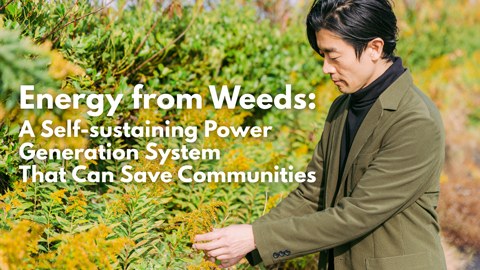In building a sustainable food system, all the various processes are essential, from input and production to processing, distribution, and consumption. Responding to the adverse impacts on environmental integrity and human rights of specific stages in the supply chain, Japan has been stepping up its sustainable procurement.

Fuji Oil works with multiple stakeholders in Indonesia, such as local governments, NGOs, and plantations, supporting activities that teach the skills necessary to protect the environment from the side effects of ignorant farming practices. Such activities include teaching small-scale farmers the way to use chemical fertilizers and are linked not only to the lessening of environmental impacts but also to the improvement of productivity.
There is a wide range of issues that needs to be addressed globally regarding the agriculture, forestry, fishery, and food industries, including climate change and the resultant increase in large-scale disasters. The United Nations Food Systems Summit will be held in September 2021 for the purpose of rebuilding sustainable food systems on a global scale, from food production through to consumption. In Japan, labor shortages due to the country’s declining, aging of the workforce have been a growing concern. Responding to these issues, on May 12 of this year, Japan’s Ministry of Agriculture, Forestry and Fisheries unveiled its strategy for Sustainable Food Systems, called “Strategy MeaDRI”. It aims to increase the organic farming area to 25% of arable land (1 million ha), reduce risk-weighted chemical pesticide use by 50% and chemical fertilizer use by 30%, and reduce carbon dioxide emissions in the agriculture, forestry and fishery sectors to zero by 2050. Among several other sustainability targets, the strategy also aims to ensure that food companies source imported raw materials from sustainable backgrounds by 2030. Achieving this target would support responsible production in their supply chains.

Palm oil, produced from the fruit of oil palm trees, can be efficiently produced and is in increasing demand because of its good production yield and the many commodities for which it can be used.

An oil palm plantation in Malaysia.
One Japanese company that already employs sustainable procurement as a key strategy within its international operations is Fuji Oil Holdings Inc., a provider of food materials including palm oil and cacao. Palm oil is derived from the fruit of oil palm trees grown in tropical countries such as Indonesia and Malaysia. It is used in various daily products, from processed foods to detergents and cosmetics. However, with oil palm plantations affecting the deforestation of tropical rainforests, there has long been concern about the industry’s impact on the environment. In recent years, issues surrounding human rights have also emerged, with stories of forced labor and child labor.
“We have made efforts to consider sustainability at all stages of the supply chain based on the Fuji Oil Group management philosophy ‘Work for people’,” explains Chief ESG (Environment, Social and Governance) Officer (C“ESG”O), KADOTA Takashi. In 2004, Fuji Oil became a member of the international organization, the Roundtable on Sustainable Palm Oil (RSPO). The company has improved its sustainability by procuring products from suppliers complying with the environmental and social criteria developed by the RSPO.
In 2016, the company established the Responsible Palm Oil Sourcing Policy, setting out its commitment to NDPE—No Deforestation, No Peat, No Exploitation. They particularly focus on a commitment to human rights issues. In 2018, Fuji Oil then created a grievance mechanism that enables complaints to be lodged concerning any human rights or environmental issues in the supply chain. A mechanism has thus been put in place to encourage poorly performing suppliers to improve their actions, ultimately leading to the suspension of dealings with those suppliers who fail to improve.


“We are facing up to our responsibilities, working to strengthen sustainable procurement for cacao and soybeans as well. In the future, we hope to achieve sustainable procurement, including that of shea nuts too,” says KADOTA Takashi, the C“ESG”O at Fuji Oil.
According to Kadota, 228 cases were confirmed by March 2021, with 90% of those suppliers now making improvements. “When it comes to the complex palm oil supply chain, with its plantations, mills, and refiners, the adverse human rights impacts are less likely to be visible than the environmental impacts. It is vital to see what is going on in order to make improvements; however, since we do not own palm plantations ourselves, we are working closely with NGOs that have a strong influence on the ground, and are guiding them in the creation of safe and fair working conditions that comply with human rights standards” Fuji Oil is also seeking further development with its goal to achieve 100% traceability of its oil palm plantations by 2030.
Another factor crucial to sustainable procurement is making the consumer more ethically aware. Fuji Oil has poured much energy into consumer education, supporting projects that encourage middle and high school students to consider ways to create a sustainable society. Through Fuji Oil’s class visits, students are made aware of the problems surrounding palm oil producers, and are taught about the importance of ethical consumption, and of choosing environmentally friendly and human-friendly products.
Handing down sustainable agriculture, forestry, fishery, and food industries to the younger generation protects the global environment, while safeguarding stable food supplies. Not only is Japan’s strategy for Sustainable Food Systems providing a step along the way for the country’s agriculture, forestry, fishery, and food industries to achieve their aims, but it is also actively engaged in building an international framework.





























